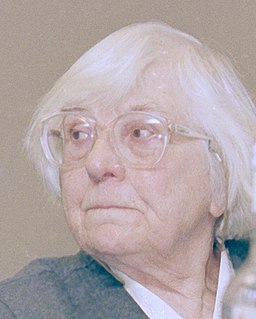Related Research Articles
The Cognition and Brain Sciences Unit is a branch of the UK Medical Research Council, based in Cambridge, England. The CBSU is a centre for cognitive neuroscience, with a mission to improve human health by understanding and enhancing cognition and behaviour in health, disease and disorder. It is one of the largest and most long-lasting contributors to the development of psychological theory and practice.
Povl Riis (1925-2017) was a Danish gastroenterologist.
Sir Peter Stanley Harper was a British physician and academic who was University Research Professor (Emeritus) in Human Genetics at Cardiff University. His work focused on researching neurogenetics and has resulted in discoveries concerning muscular dystrophies and Huntington's disease. He was knighted in 2004 for services to medicine.
The Wellcome Trust Centre for the History of Medicine at UCL (2000-2012) was a research and teaching centre within University College London dedicated to the history of medicine. It was created through a grant from the Wellcome Trust, on the model of other Wellcome Trust Centres, as a national and international centre of excellence in its field. As a university department, it was administered by an internal governance committee chaired by the Centre's Director, who was in turn advised by an international committee of external academic specialists in the history of science and medicine; until 2009, the Director reported to the Dean of Life Sciences and a governing committee on which the dean also sat.
The Centre for History in Public Health (CHiPH) is an academic research centre at the London School of Hygiene & Tropical Medicine (LSHTM), University of London. It specializes in historical research into public health and health services, and advocates the use of history within public health policy making.
Roderick John Flower, also known as Rod, is a British pharmacologist, and professor at Barts and The London School of Medicine and Dentistry. Dr. Flower is a member of the board of directors of Antibe Therapeutics and on the scientific advisory board of Morria.

Elizabeth Matilda Tansey is an Emerita Professor of the history of medicine and former neurochemist, best known for her role in the Wellcome Trust's witness seminars. She previously worked at Queen Mary University of London (QMUL).
The History of Modern Biomedicine Research Group (HoMBRG) is an academic organisation specialising in recording and publishing the oral history of twentieth and twenty-first century biomedicine. It was established in 1990 as the Wellcome Trust's History of Twentieth Century Medicine Group, and reconstituted in October 2010 as part of the School of History at Queen Mary University of London.

Ethel Bidwell (1919–2003) was a British research scientist who investigated blood coagulation.
Peter Orchard Williams (1925−2014) was a British physician, who served as Director of the Wellcome Trust, and of the Wellcome Institute for the History of Medicine.
Roger Hugh Jones is a British general practitioner, a professor of general practice, and editor of the British Journal of General Practice.
Professor Raymond Leonard Powles CBE, FRCP, FRCPath, known as Ray, is a British physician.
Professor Peter Damian Richardson FCGI, FRS is a British biomedical engineer and academic.

Virginia Berridge, is a British academic historian and public health expert.
Professor James Scott FRCP, FIBiol, FMedSci, FRS is a British cardiologist.
Professor Hubert Frank Woods (1937-2016), known as Frank, was a British pharmacologist.
Sir Alasdair Muir Breckenridge, was a Scottish pharmacologist.
Professor Charles Samuel Bernard Galasko ChM, FRCS, FRCSEd, FCMSA (Hon), FFSEM (Ire), FFSEM (UK), FMedSci, often cited as Charles S. B. Galasko, is a South African orthopaedic surgeon.
Professor Domhnall MacAuley MD, FRCGP, FFPHMI, FFSEM, FISM is a former physician, a professor of primary health care and a medical journal editor.
Dr Francis Patrick Marsh (1936–2011), known as Frank, was a British nephrologist and academic administrator.
References
- ↑ "Witness seminars – a new way of making history". Queen Mary University of London . Retrieved 16 April 2017.
- ↑ "Children and Young People". King's College London . Retrieved 16 April 2017.
- 1 2 "Wellcome Witnesses to Twentieth Century Medicine". The History of Modern Biomedicine Group . Retrieved 16 April 2017.
- ↑ Tansey, Tilli (28 September 2006). "Chapter 14: Witnessing the witnesses: Potentials and pitfalls of the witness seminar in the history of twentieth-century medicine". In Doel, Ronald E.; Söderqvist, Thomas (eds.). The Historiography of Contemporary Science, Technology, and Medicine: Writing Recent Science. Routledge. pp. 260–278. doi:10.4324/9780203323885. ISBN 978-020332388-5.